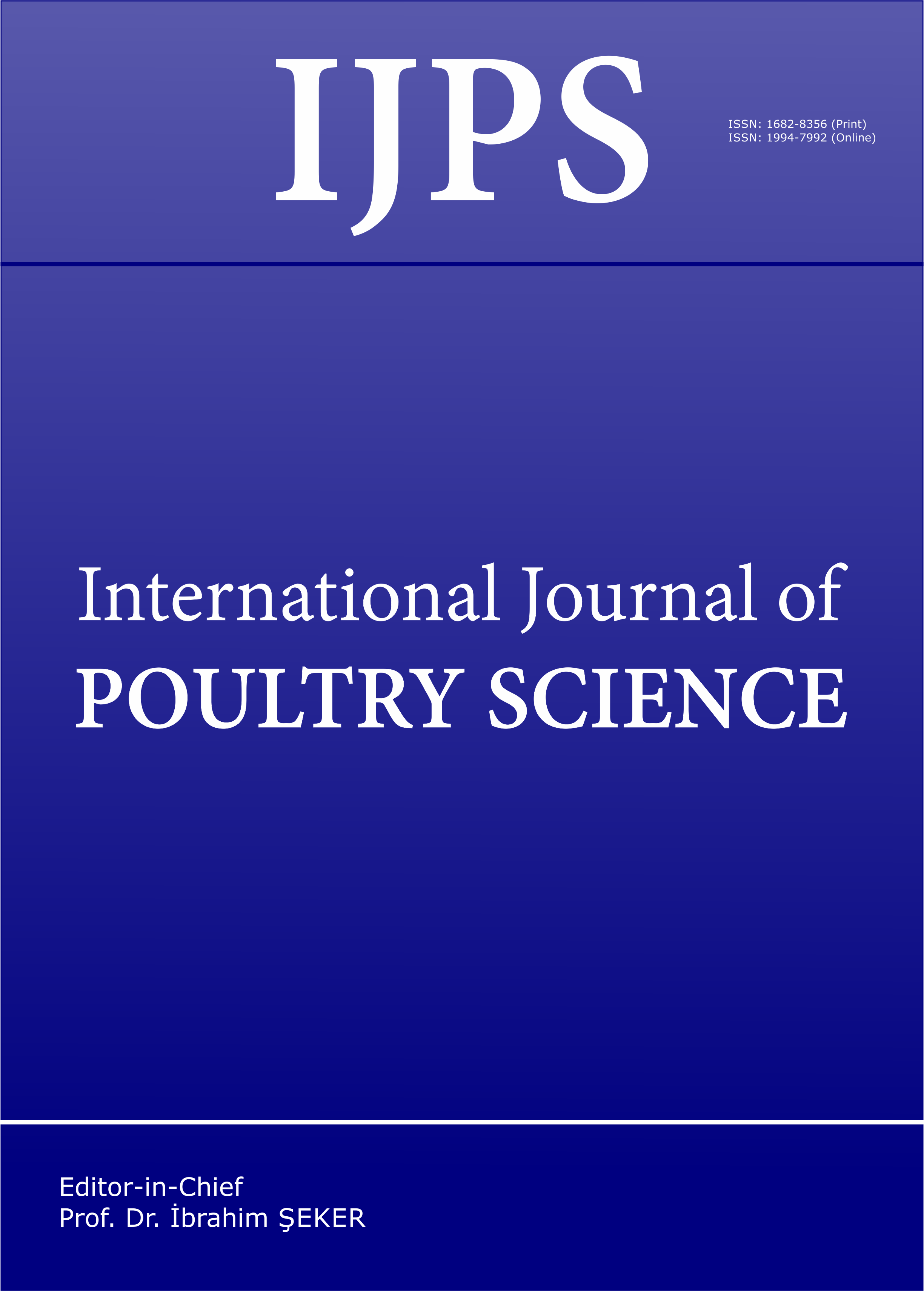Reproductive Performance of Broiler Breeders as Affected by Age at Initiation of Laying Cycle Lighting Program
DOI:
https://doi.org/10.3923/ijps.2007.462.465Keywords:
Age of initiation, broiler breeders, performance, sexual maturityAbstract
The control of lighting for broiler breeders is an extremely important aspect of controlling their reproductive performance. The length of light available to broiler breeder hens significantly effects the age at which they begin producing eggs and their subsequent peak egg production levels. Although most broiler breeders in the U.S. are grown in light-tight houses, in many areas of the world they are not and these producers must rely on natural daylight supplemented by artificial lighting. Therefore, it is important to understand the effects of delaying the age of initiation of artificial lighting programs when birds are grown under natural lighting conditions. In this experiment, June-hatched broiler breeders were grown under natural day length and artificial photostimulation was begun at either 18, 20 or 22 weeks of age. The results of this experiment showed that early egg production is decreased significantly in birds in which photostimulation has been delayed until 22 weeks of age. However, this significant decrease did not affect the overall egg production. This study indicated that delaying the artificial photostimulation of June-hatched broiler breeders until 22 weeks of age was not detrimental to their overall performance.
Downloads
Published
Issue
Section
License
Copyright (c) 2007 Asian Network for Scientific Information

This work is licensed under a Creative Commons Attribution 4.0 International License.
This is an open access article distributed under the terms of the Creative Commons Attribution License, which permits unrestricted use, distribution and reproduction in any medium, provided the original author and source are credited.

